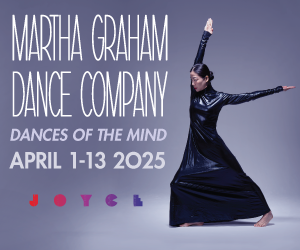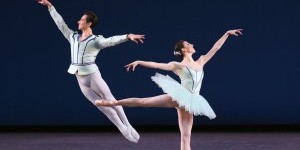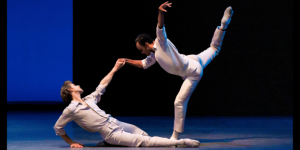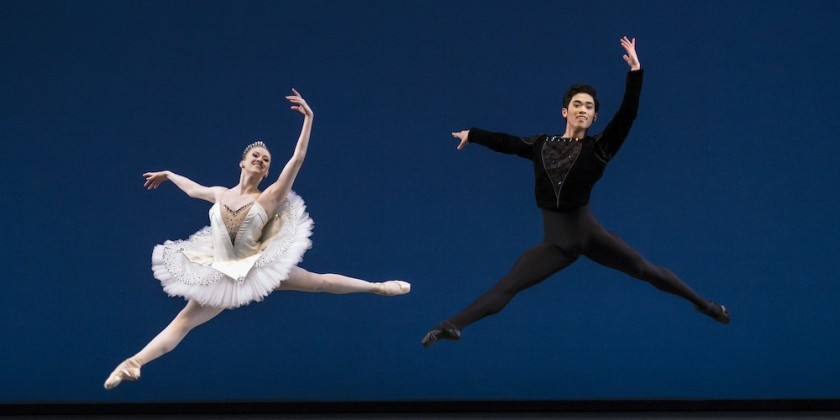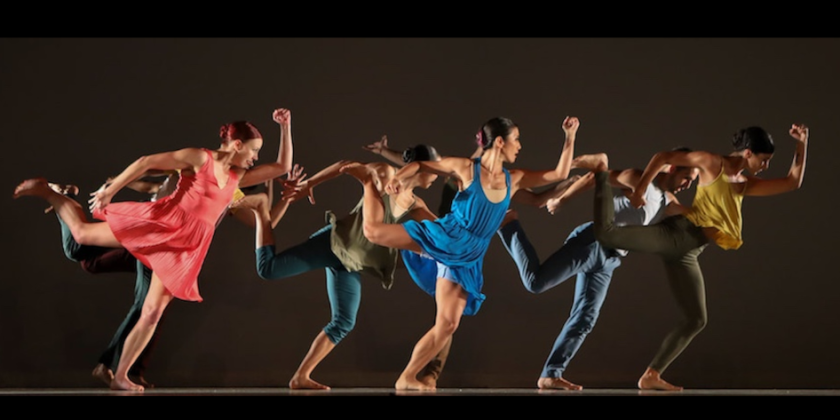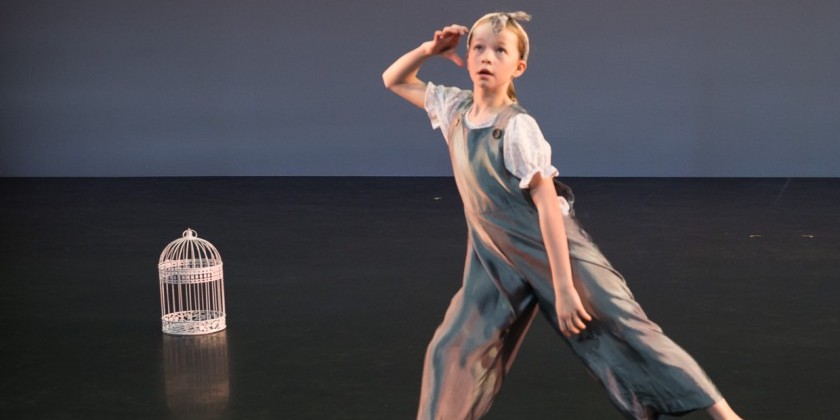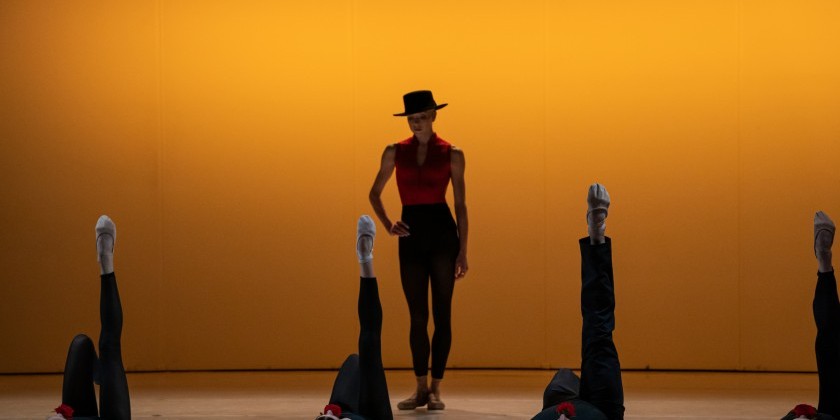IMPRESSIONS: New York City Ballet — "All Peck" Program
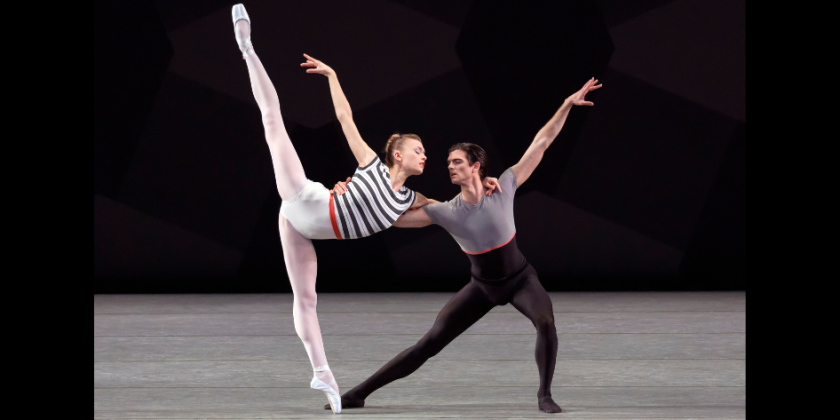
New York City Ballet — All Peck Program
Artistic Director: Jonathan Stafford
Associate Artistic Director: Wendy Whelan
Resident Choreographer and Artistic Advisor: Justin Peck
Artist in Residence: Alexei Ratmansky
Choreography: Justin Peck
Dates: September 24 and October 3, 12 and 13, 2024
From Justin Peck’s very first piece for New York City Ballet to a pandemic-work made during 2021 and beyond, All Peck celebrates Peck’s decade as NYCB’s resident choreographer. In the grand walls of the David H. Koch Theater, a highlight of All Peck is the mini-documentary ON OUR WAY: Justin Peck’s Decade in Residence, which delves into his creative mindset. “Dance is this visceral expression through the body that can't be put into words, and I think that there's so much left to discover,” Peck says.
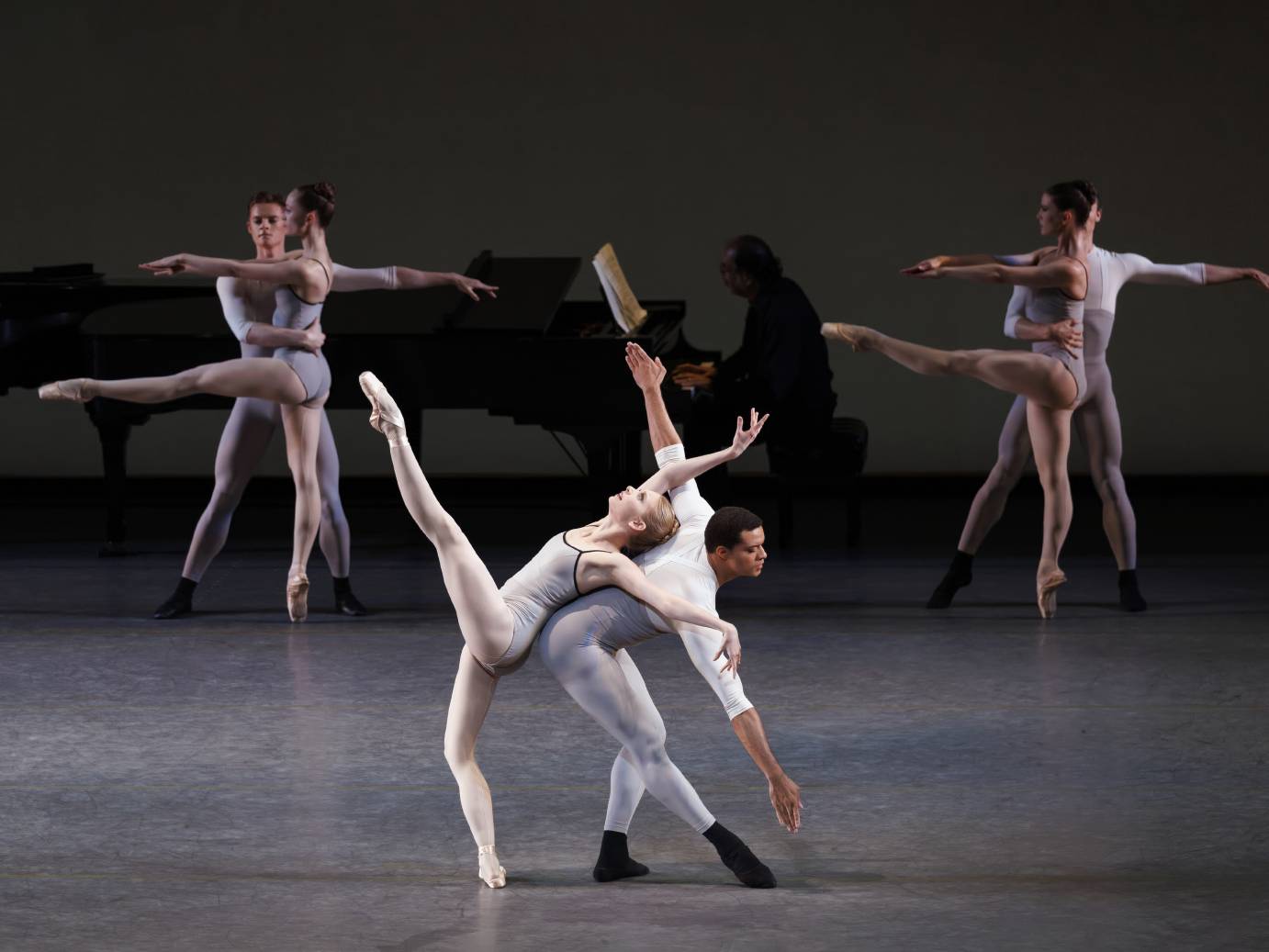
In Creases, an eight-person ballet set to Philip Glass’ “Four Movement for Two Pianos” opens the program. The work, which marks the beginning of Peck’s choreographic career at NYCB. premiered in 2012 at Saratoga Performing Arts Center. The curtain rises to reveal two pianists, Elaine Chelton and Alan Moverman, opposite each other, alongside dancers dressed in crisp silver leotards and tights. The dancers, with no build up or introduction, move at a thrilling, breathless pace. Soft back bends and geometric lines of tendus contrast soaring arabesque jumps and staccato grande battements. Kaleidoscopic structures form, move, disassemble, and reassemble in matters of minutes. In Creases kicks off the evening of ballet with high caliber technique and exhilaration.
Switching gears and pace comes the compelling Solo, a movement time capsule, created during the Covid shutdown. Originally choreographed for principal dancer Anthony Huxley, Solo premiered in NYCB’s 2021 virtual Spring Gala film directed by Sophia Coppola. Set to the emotive Adagio for Strings by Samuel Barber, dancer Naomi Corti appears onstage sleekly clad in a sleeveless black blazer and skin-toned ballet flats by Belgian designer Raf Simons.
Beyond her swift double coupé turns and petite allegro jumps, there are pedestrian moments —simple walking, stagnant parallel stances, and unpointed, flexed feet which reveal her humanity. During each minute of this dance, we feel Corti using every ounce of energy to reach further than her small stature allows. Even the desperate extension of her fingertips can be felt from rows away. The sensation of loneliness Corti’s dancing triggers chills, reminding us of the isolation and anxiety we felt as the world shut down around us.
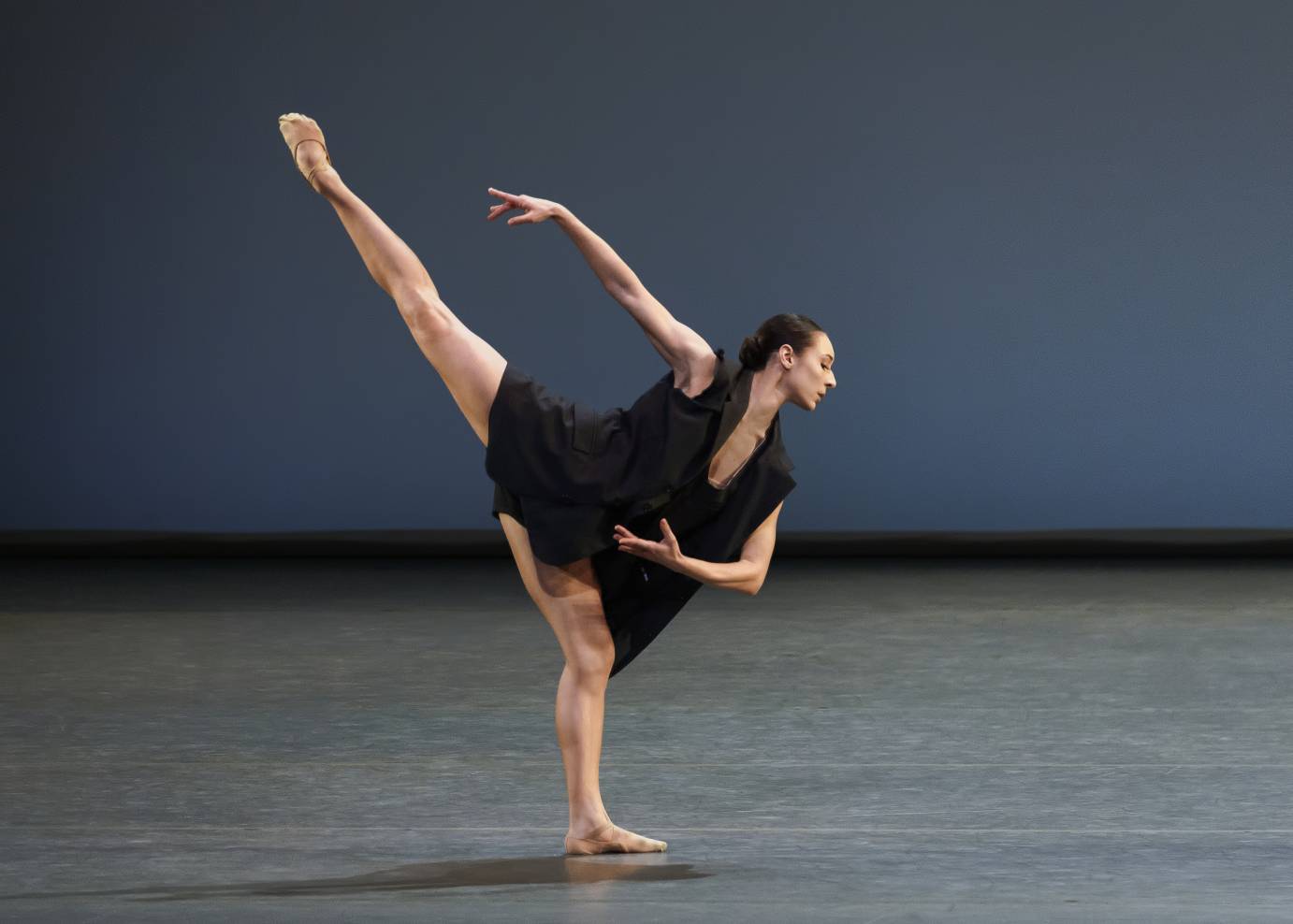
Between intermissions come two larger group works, Partita (2022) and Everywhere We Go (2014). Set to an a capella soundtrack, Partita for 8 Voices by the American composer, Caroline Shaw, Partita is a playful collaboration with New York-based visual artist Eva LeWitt, daughter of the famed Sol LeWitt. Shaw’s musical composition was originally inspired by the senior LeWitt’s Wall Drawing 305, which maps one hundred randomly located points on a wall connected and traversed with lines and arcs. The eight dancers, in white tennis shoes and color-blocked outfits by Reid Bartelme and Harriet Jung, are focused and calm as their limbs create parallelograms, arrows, and other geometric patterns that fit together like puzzle pieces, then quickly reconfigure.
The a capella voices verbalize LeWitt’s painting, detailing points and midpoints of the drawing, humming, or creating rhythm with their breath. The dancers react to the voices, illustrating the drawing and sound score in tandem. India Bradley, part of original cast, stands out as she embodies noticeable fluidity in her shapes, delicately curling and intertwining with whomever she’s partnering.
Sometimes the smoothness of the voices in harmony soothes, other times, the abrasive voices and whispers distract. I was left wondering how the choreography would appear against another musical composition, and if I would focus more on the movement than the soundtrack.
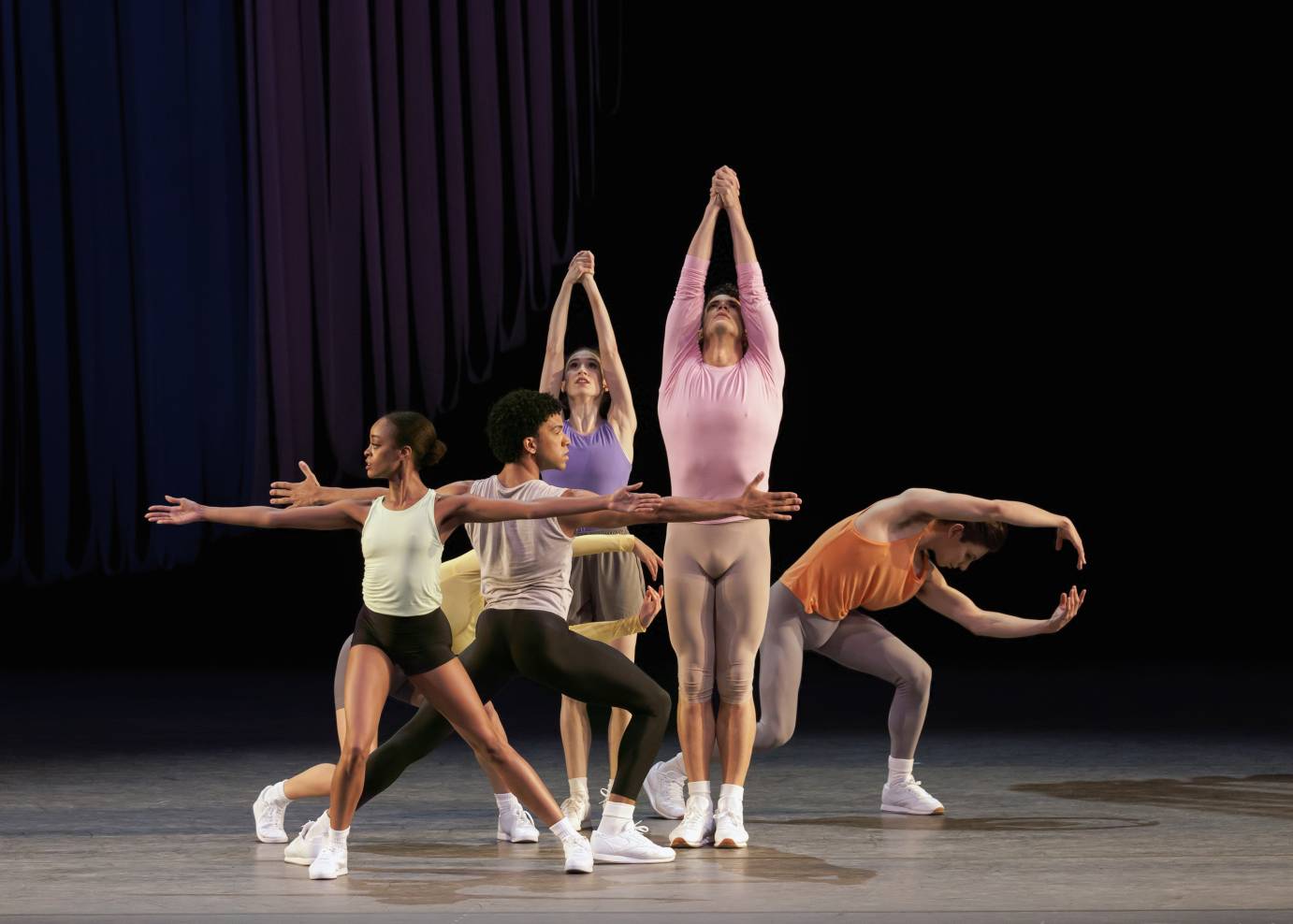
Everywhere We Go, a large-scale ballet parade and a final salute to all of Peck’s work, concludes the evening in the most grandiose of ways — with a gigantic cast of 25 dancers moving to Sufjan Stevens’ cinematic score of the same name. Janie Taylor’s costume design feels somewhat nautical with the female dancers dressed in striped leotards with thin red belts and white pointe shoes and the male dancers in dark gray leotards, red belts, and black tights.
The work pushes through nine musical chapters, each taking us on a balletic voyage that finds the dancers reflecting the airiness of the celebratory music. From male duets to single dancers being lifted to the sky by the multitude; from large divided groups with whirling soloists to sweeping duets disappearing on and offstage, Everywhere We Go travels triumphantly.




